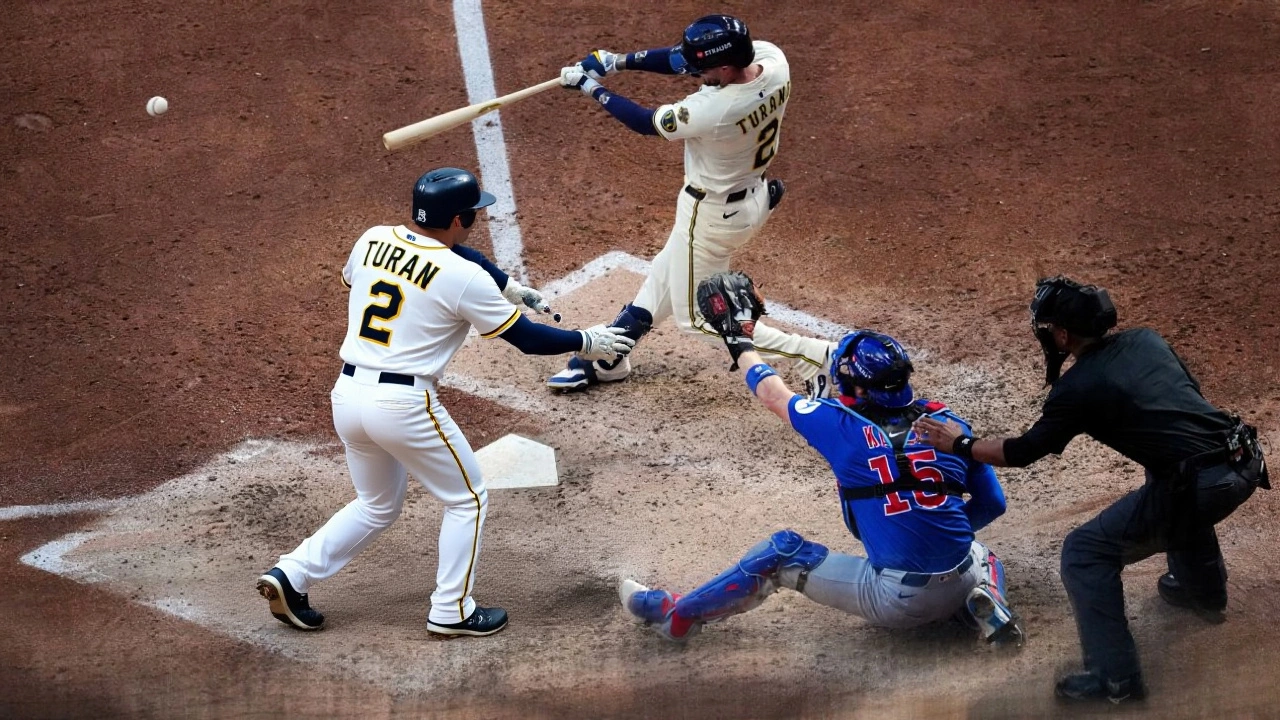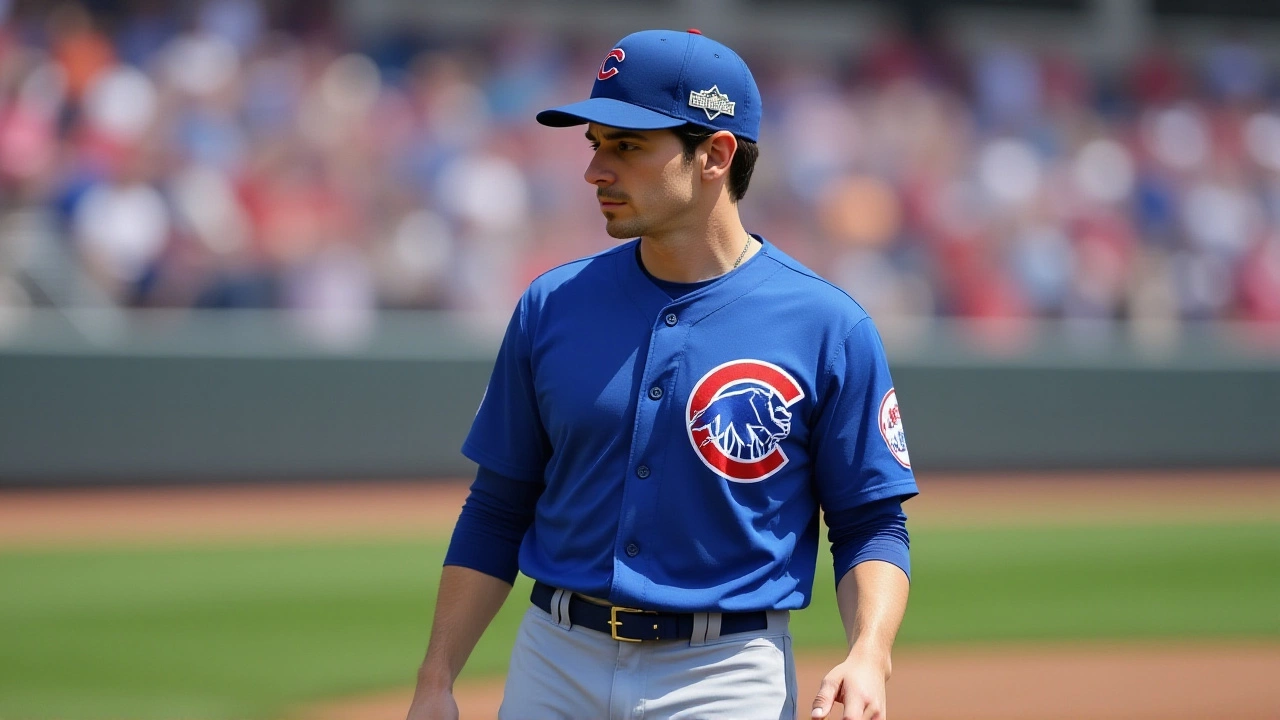When Trevor Megill, All‑Star closer of Milwaukee Brewers, faced off against Drew Pomeranz, the long‑relief specialist for the Chicago Cubs, the stage was set for a high‑stakes showdown. Pat Murphy, the Brewers’ manager, had openly praised a "full‑team effort" on the mound, while Cubs skipper Craig Counsell insisted his staff had enough depth to survive and advance. The drama unfolded at American Family Field in Milwaukee during Game 5Milwaukee, a winner‑take‑all encounter that would decide the National League Division Series.
Backdrop to the Decisive Duel
The NLDS had been a roller‑coaster. The Brewers, who had scraped through the first four games with a mixture of swagger and nerves, entered the final night trailing 2‑2. Their early‑inning woes — surrendering at least one run in the first inning of each game — had become a recurring headache. Meanwhile, the Cubs, fresh off a 2‑1 series‑level win at Wrigley Field, believed their bullpen could finally lock down the closing inches.
Unconventional Pitching Strategies
Both clubs abandoned the traditional starter‑to‑relief rotation. Murphy elected to open the game with Megill, typically the man who shuts the door in the ninth. The plan was simple: let the closer eat the first inning, buy time for the rest of the staff, and then unleash a chain of arms to finish the job. Megill, who entered the series in Games 2 and 4, had already logged 12 innings across three outings, posting a 2.49 ERA and a sparkling 1.13 WHIP.
Across the diamond, Counsell trusted Pomeranz, a veteran who spent 2024 shuffling between long‑relief and spot starting roles. Pomeranz’s 2.17 ERA and 1.07 WHIP had earned him the informal title of "the guy you call when you need a spark." By positioning him as the opener, the Cubs hoped to neutralize the Brewers’ early‑inning onslaught and give their offense a chance to catch up.
Game 5 Recap: How the Brewers Clinched It
The first inning lived up to its reputation. Megill threw three perfect outs, a refreshing contrast to the Brewers’ previous starters who had been peeled apart by Chicago’s lineup. In the bottom half, the Cubs managed only a solitary runner via a leadoff single, and Pomeranz promptly induced a double play to keep the damage minimal.
But the real story unfolded after the opening frame. Milwaukee’s bullpen — a revolving door of five arms, including rookie Jacob Misiorowski and newcomer Chad Patrick — combined for 27 outs without a hitch. Each pitcher delivered a clean inning, effectively shutting down the Cubs’ modest offense, which managed just six baserunners the entire night.
Offensively, the Brewers answered with timely power. William Contreras led off the third with a solo shot that gave Milwaukee a 1‑0 edge. Two innings later, Andrew Vaughn matched the lead with his own long ball, and Brice Turang capped the scoring in the sixth with an insurance homer. The final tally: Brewers 3, Cubs 1.
Fans in the stands — a roaring 42,743‑strong crowd — witnessed a script flip that ended Milwaukee’s streak of six straight postseason series losses dating back to the 2018 NLCS against the Los Angeles Dodgers.
Reactions from the Dugout
After the final out, Murphy praised the collective effort. "We knew we had to do something different," he said, "and these guys delivered exactly what we asked for."
Counsell, meanwhile, remained pragmatic. "We gave it everything we had," he admitted, "but sometimes the cards just don’t fall your way. We'll learn from this and come back stronger."
Megill, who earned the win, responded with a humble grin. "Just doing my job," he said, "but it feels good to give the city something to cheer about."

What the Victory Means for Milwaukee
The Brewers now set their sights on the National League Championship Series, where they will meet the star‑laden Los Angeles Dodgers. Game 1 is slated for Monday, October 13 at 7:08 p.m. CT, back at American Family Field. The momentum from a clutch bullpen performance could be the catalyst Milwaukee needs to finally break through the NLCS barrier.
Beyond the immediate matchup, the win validates a growing trend in baseball: the “opener” experiment. By trusting a closer to open and leaning on a deep, versatile bullpen, teams can neutralize early‑inning vulnerabilities. Whether other clubs will emulate Milwaukee’s formula remains to be seen, but the results this night were hard to argue with.
Looking Ahead: The NLCS Preview
If the Dodgers continue their offensive fireworks, the Brewers will need every ounce of the versatility they displayed in Game 5. Pitcher Jacob Misiorowski will likely see a larger role, while veteran arm Jacob deGrom of the Dodgers is expected to dominate on the mound. The series promises high‑stakes drama, but for now, Milwaukee can savor the relief of finally ending a six‑year postseason series drought.
- Final score: Brewers 3, Cubs 1
- Winning pitcher: Trevor Megill (1‑0 record, 2.49 ERA)
- Key home runs: William Contreras, Andrew Vaughn, Brice Turang
- Attendance: 42,743 at American Family Field
- Next opponent: Los Angeles Dodgers in the NLCS
Frequently Asked Questions
Why did the Brewers choose a closer to start Game 5?
Pat Murphy explained that the Brewers needed a reliable arm to shut down the aggressive Cubs lineup in the first inning, a phase where they had struggled all series. Megill’s 2.49 ERA and 1.13 WHIP made him the most dependable option, even if it meant using him outside his usual ninth‑inning role.
How did the Cubs’ pitching strategy backfire?
By inserting Drew Pomeranz as an opener, the Cubs hoped to limit early damage, but the Brewers’ bullpen responded fiercely. The Cubs managed only six baserunners and could not generate enough offense to overcome the three solo homers.
What does this win mean for Milwaukee’s postseason history?
The victory ends a six‑year streak of NLDS/NLCS defeats for the Brewers, finally advancing them to the NLCS. It also showcases the success of a flexible bullpen approach that could influence future postseason strategies.
Who are the key players to watch in the upcoming NLCS?
For Milwaukee, rookie Jacob Misiorowski and veteran Jacob deGrom are slated to anchor the staff. The Dodgers will likely rely on ace Shohei Ohtani and power hitter Mookie Betts, making the series a showdown of elite talent.
Will other teams adopt the “opener” tactic after this game?
Analysts say the Brewers’ success adds credibility to the opener experiment. While not every club will flip their rotation, teams with deep bullpens may consider it for high‑leverage postseason games.

